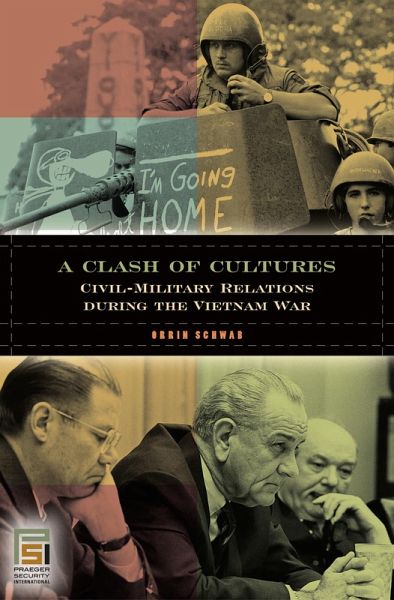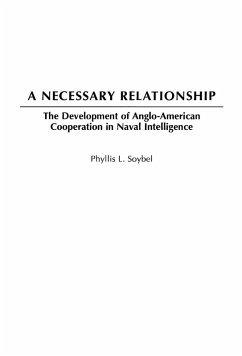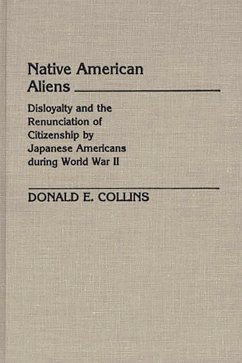
A Clash of Cultures (eBook, PDF)
Civil-Military Relations during the Vietnam War
Versandkostenfrei!
Sofort per Download lieferbar
40,95 €
inkl. MwSt.
Weitere Ausgaben:

PAYBACK Punkte
20 °P sammeln!
The Vietnam War was in many ways defined by a civil-military divide, an underlying clash between military and civilian leadership over the conflict's nature, purpose and results. This book explores the reasons for that clash-and the results of it. The relationships between the U.S. military, its supporters, and its opponents during the Vietnam War were both intense and complex. Schwab shows how the ability of the military to prosecute the war was complicated by these relationships, and by a variety of nonmilitary considerations that grew from them. Chief among these was the military's relation...
The Vietnam War was in many ways defined by a civil-military divide, an underlying clash between military and civilian leadership over the conflict's nature, purpose and results. This book explores the reasons for that clash-and the results of it. The relationships between the U.S. military, its supporters, and its opponents during the Vietnam War were both intense and complex. Schwab shows how the ability of the military to prosecute the war was complicated by these relationships, and by a variety of nonmilitary considerations that grew from them. Chief among these was the military's relationship to a civilian state that interpreted strategic value, risks, morality, political costs, and military and political results according to a different calculus. Second was a media that brought the war-and those protesting it-into living rooms across the land. As Schwab demonstrates, Vietnam brought together two leadership groups, each with very different operational and strategic perspectives on the Indochina region. Senior military officers favored conceptualizing the war as a conventional military conflict that required conventional means to victory. Political leaders and critics of the war understood it as an essentially political conflict, with associated political risks and costs. As the war progressed, Schwab argues, the divergence in perspectives, ideologies, and political interests created a large, and ultimately unbridgeable divide between military and civilian leaders. In the end, this clash of cultures defined the Vietnam War and its legacy for the armed forces and for American society as a whole.













